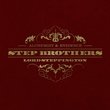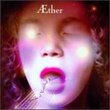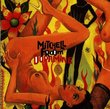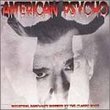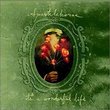| All Artists: Bartok, Szekely, Dorati, Lso Title: Bluebeard's Castle Members Wishing: 0 Total Copies: 0 Label: Philips Release Date: 10/13/1992 Genres: Pop, Classical Styles: Vocal Pop, Opera & Classical Vocal Number of Discs: 1 SwapaCD Credits: 1 UPC: 028943432528 |
Search - Bartok, Szekely, Dorati :: Bluebeard's Castle
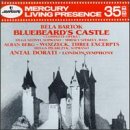 | Bartok, Szekely, Dorati Bluebeard's Castle Genres: Pop, Classical
|
Larger Image |
CD DetailsSimilarly Requested CDs
|
CD ReviewsA most powerful and authentic performance R. J. Claster | Van Nuys, CA United States | 05/23/2002 (5 out of 5 stars) "This is the most powerfully conducted Bluebeard among the several versions that I have heard, one of unequalled dramatic thrust and intensity. Dorati, who, as a young man in Budapest, was a pupil of Bartok, brings out the Hungarian folksong based rhythms and colors of this music instead of, as other interpreters tend to do, soften or smooth them out (perhaps in order to create a more overtly dream like atmosphere), which robs the music of its considerable dramatic force. The singers, though lacking the vocal beauty of those in some other recordings, are both native Hungarians, and moreover, the Bluebeard in this recording was tutored in the role by Bartok himself. Arguably then, the singing here, along with the conducting, possesses the most stylistic authority of all the versions currently available. Finally, the recorded sound is crystal clear and dynamic, thus enhancing the qualities of Dorati's performance. If you are a lover of Bartok, this is an essential purchase." Bartok's only opera, given lots of paprika W. B. Spencer | Maryland, USA | 04/01/2009 (4 out of 5 stars) "This is certainly a legendary performance and recording, and the one I grew up with on LP. The work itself is exceedingly un-dramatic in any conventional sense, which largely accounts for the rarity of staged performances, but it works very well on disc since the drama is all interior. It is also among the gloomiest, most depressing musical experiences I know. If you can handle all that, then this is a must-own opera for opera buffs and Bartok buffs. It's pretty early as Bartok goes, heavily influenced by Richard Strauss and especially Debussy, steeped in the sound and rhythm of the Hungarian language and almost lush in places. It also lacks the brittle, stripped-down quality of a lot of Bartok that puts so many people off; the folk-music influence is strong but not really as pervasive as it would become.
The performance is very fine in many ways but has one or two weaknesses that might put some folks off. The orchestra plays very well, and Dorati makes a very strong case for the work as a whole but does so through intensity and focus instead of atmosphere. It's a very different approach to what I understand Haitink's to be, but certainly equally valid. The technical aspects of the recording place it squarely in line with Mercury's production values as a whole. (Check out the places where the walls sigh!) The weaknesses? For most they will center on the singing. Szekely as Bluebeard studied the role with Bartok, who even made some changes to the part to accommodate the singer's voice, and he absolutely inhabits the role, even if he comes across as being older than you may want. Szonyi is unfortunately rather hard to take as Judith, wife number four, with a wobble that can obscure which note she's actually supposed to be singing. At the same time, she is not interested in making the part either out-of-character-beautiful or just plain showy, so that for instance the one high C she has is just as Bartok writes it, not held out for several measures to demonstrate her ability to hold the note. It's very Eastern European singing, less polished perhaps than we're accustomed to, but fully idiomatic. To sum up, as long as you leave any preconceived notions of Renee-Fleming-like gorgeous singing at the door, you'll find this an intensely powerful performance of an intense and powerful score. What a shame Bartok did so little with stage music!" |

 Track Listings (11) - Disc #1
Track Listings (11) - Disc #1